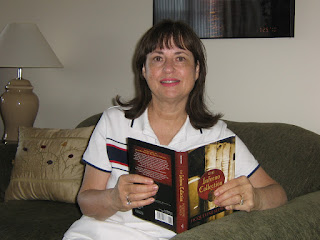Three weeks in India is barely enough time for me to get settled, unpack and get in touch with friends, but that was all I had. It was easy for me to do nothing but read, write, visit with friends, and think about where to have lunch or dinner. But I had one other task to attend to.
For over thirty-years I had the friendship of a woman who worked for me and my husband when we first lived there, and in her later years we became her main support, since she was by now a widow as well as childless. Being old and poor in India is not a good prospect, and although Lakshmee worked into her eighties in various capacities (selling wood which she stored in her house), she clearly was in decline. She died in September after an operation for a badly broken leg.
I knew this through emails, and sent money when asked and followed her medical care as well as one can from the other side of the world. When I arrived in India, I went to see one of her former employers who had been helping in her care and passing along information to me. To my surprise, Lakshmee had left something for me with one of her doctors.
The Triveni Nursing Home is an ayurvedic hospital where Lakshmee often went when she felt unwell, or, in my view, lonely and sad, and they always took her in, even if she showed no signs of having any money. I had told them I would cover her costs and they never seemed to worry about it. When I went to visit them in January, Lakshmee’s doctor informed me that she had left her puja items for me. I promised to return to pick them up the following week because the doctor’s maidservant was cleaning them (those wails of pain you hear are antiques dealers groaning across the country).
When I first met Lakshmee she was a complete surprise—someone who opened up doors to another world, a world that a colleague once told me was often unavailable to others. And at the end she was a surprise too. The puja items weren’t the usual ones I had seen her use—the steel water pots, the little lamps, the wooden incense holders. These were heavy bronze pieces that must have belonged to her parents—a heavy oil lamp and a water pot, and a small incense holder and oil votive lamp. A friend looked them over and told me which ones were the oldest and how I could tell.
I brought them back and they now sit in my library. I don’t recall ever seeing Lakshmee use them, and it may be that at one point she realized they were too valuable to have around for anyone to see; she had only a padlock on her front door, and had been robbed at least once. She was cautious with things that mattered to her, and she put away her puja items. And now I have them, an unexpected gift from someone who gave me so many over the years.
Lakshmee was, in the slang of the moment, the real deal, a traditional Nayar lady for whom the traditional culture was still more real that the modern world, and certainly made more sense. She had a clear and strong personality, and not surprisingly she shows up in some of my favorite and most vivid characters in the Anita Ray series. You’ll meet her in the next Anita Ray, coming in June 2012. If you want to know what Lakshmee was like, look for Gauri in The Wrath of Shiva. She turns the plot upside down, and then rescues it.
 Hi,
Hi,



